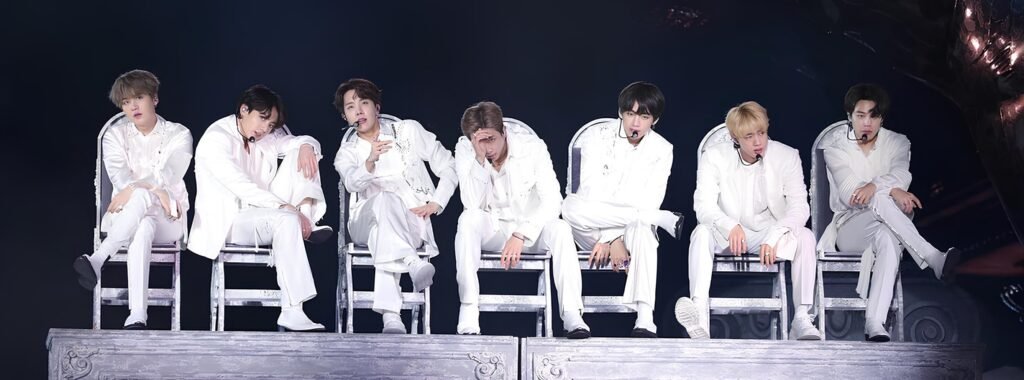Here’s a fun fact: BTS isn’t just a band. They’re an economic force so powerful that their return from military service is practically a national stimulus plan for South Korea.
After 18 months of collective ARMY patience (and quiet government prayers), BTS is back together, and economists, brands, and the entertainment industry are breathing a massive sigh of relief. Because in case you missed it, BTS isn’t just making hearts flutter—they’re making cash registers sing.

Before enlistment, BTS was adding an estimated $3.6 billion annually to South Korea’s economy, from tourism and exports to boosting Korean brands globally. At their peak, they were bringing in numbers equivalent to hosting the Olympics every year for South Korea, without requiring stadiums or security headaches—just seven guys, a few mics, and a lot of talent.
And while each member kept the BTS name alive with solo projects (Jungkook breaking streaming records, Jimin landing global ambassadorships, RM dropping critically acclaimed albums while quietly ruling every museum corner he visits), the group’s collective absence left a noticeable gap in South Korea’s cultural and economic output.
Tourism numbers dipped without ARMYs flooding into Seoul to visit Hybe Insight, buy BTS merch, or chase down every cafe that once hosted a BTS birthday event. Even local businesses felt the slowdown, proving that BTS isn’t just a “music thing”—they’re a national infrastructure at this point.

Now that they’re back, the conversation isn’t if BTS will reclaim their position as the kings of K-pop and global pop culture. It’s how quickly they will accelerate South Korea’s cultural exports and tourism rebound. And let’s be honest, brands are already lining up like it’s Black Friday to secure BTS endorsements, because a single Weverse post from a BTS member can sell out products faster than any traditional marketing strategy ever could.
BTS’s return also matters for the broader K-pop industry, which has grown rapidly while they were away but still heavily relies on the doors BTS opened globally. Their comeback will reenergize concerts, merchandise sales, and Korean content demand, boosting everything from streaming numbers on Spotify to flights to Incheon.
It’s also a reminder that no matter how many new groups debut, BTS’s cultural and economic power is incomparable. They’re not just artists; they’re cultural diplomats, brand powerhouses, and an ongoing masterclass in how authenticity and hard work can build an empire that lifts an entire country’s profile.
And let’s not pretend the government isn’t thrilled. With a slowing domestic economy and export challenges, BTS’s return is a rare bright spot that everyone—from shop owners to policymakers—is ready to celebrate.
So yes, BTS is back, and while ARMYs are celebrating new music and OT7 moments, South Korea’s economy is quietly popping champagne, too. Because these seven men don’t just make songs that comfort people around the world—they drive entire industries, boost national pride, and bring the world closer to Korea with every comeback.
Welcome back, BTS. The charts are ready, the world is ready, and, apparently, the GDP is ready, too.






















































































